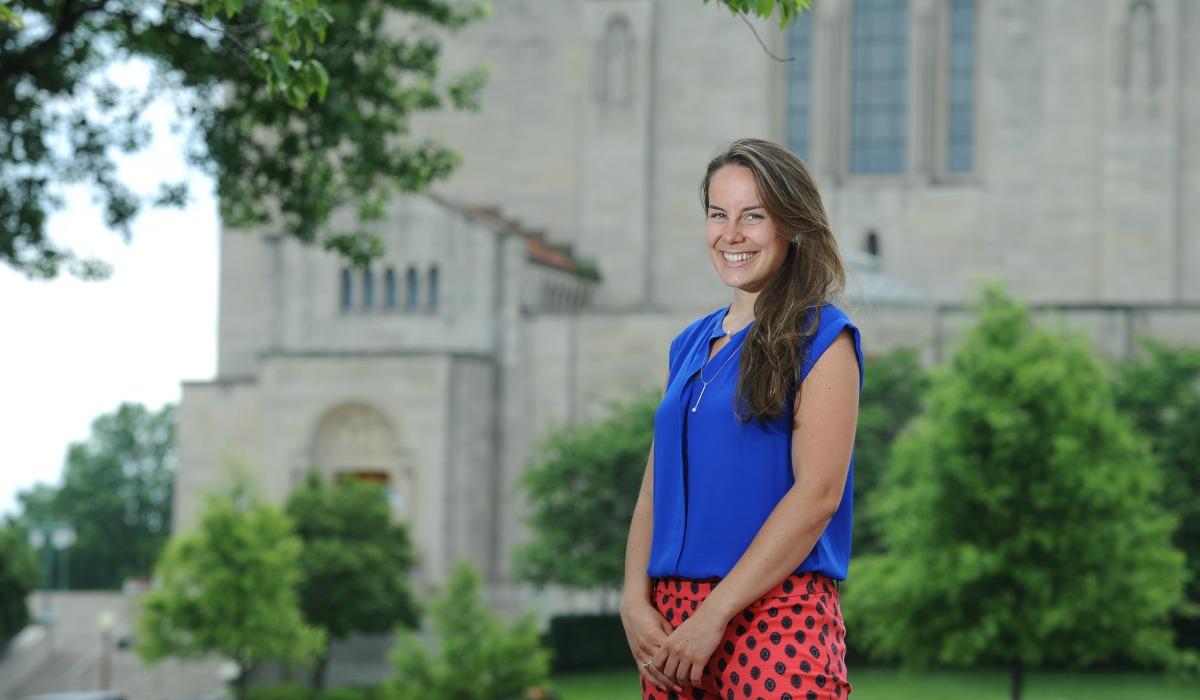

Emily McBryan has always been intrigued by the “big questions.” During her undergraduate years, she studied the heavyweights of philosophy and theology – Aristotle, Aquinas, Kant, Kierkegaard – eager to know whether the things she had been taught in high school would withstand scrutiny. “I was at a point in my faith where I wanted to have rational arguments for why I believed what I did,” she says.
McBryan found rational arguments in abundance. But it was always literature that helped her understand those arguments in the context of the real world. “I found that literature encompasses all of those things philosophy and theology are talking about. Literature offers an account of the human experience, of man trying to make sense of his being in the world.”
After graduation, McBryan taught three years of middle and high school English, but her experience reaffirmed something she had already suspected. “I had to learn how to present things from a simpler perspective, which was good, but I realized that I wanted to teach at a higher level and have those conversations with students who are old enough to have a serious discussion.”
McBryan applied to graduate school at Catholic University, impressed by the unusual approach of the English department and the integrity of the professors. “I appreciate the aesthetic focus [on literature] at CUA, rather than the theoretical. More importantly, I haven’t encountered a professor yet that wants to impose his own ideology on a student. They want you to form your own conclusions about things. That’s not the norm everywhere”
While studying literature of the American South – McBryan’s particular research interest – her Catholic faith has helped her consider writers like William Faulkner from a fresh perspective. “[These writers] are dealing with the fact that their society has fallen, and that they’ve now got to own this inheritance of racism and slavery,” she says. “As a Catholic, the inheritance of original sin shapes my own perspective on suffering and defeat. This is an important part of understanding existence and I want to share it with others.”